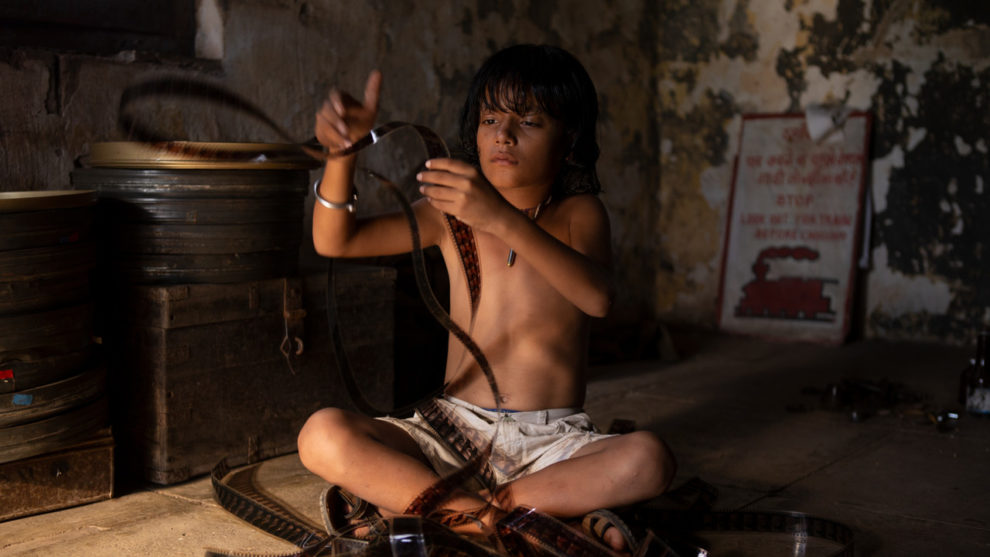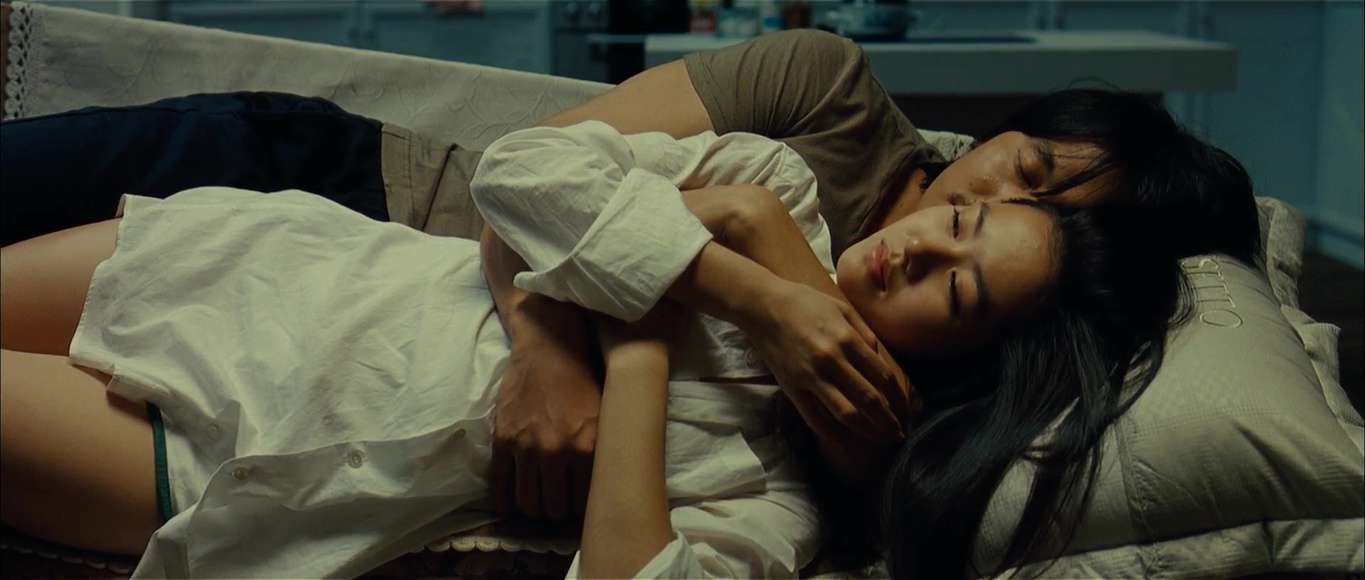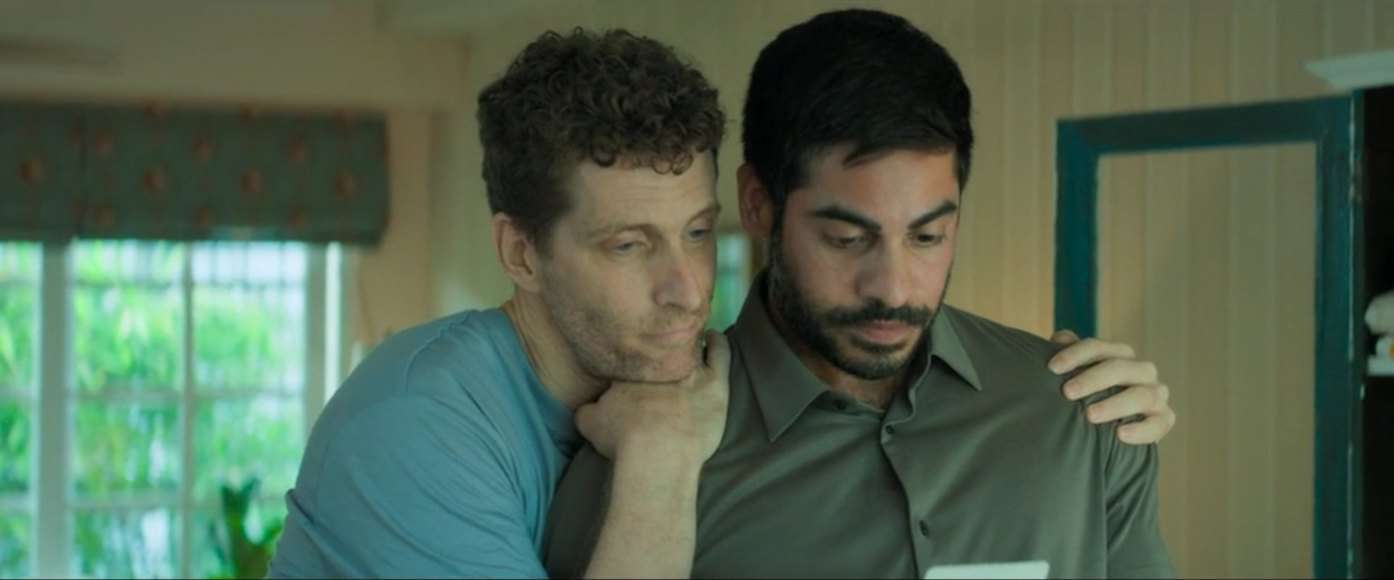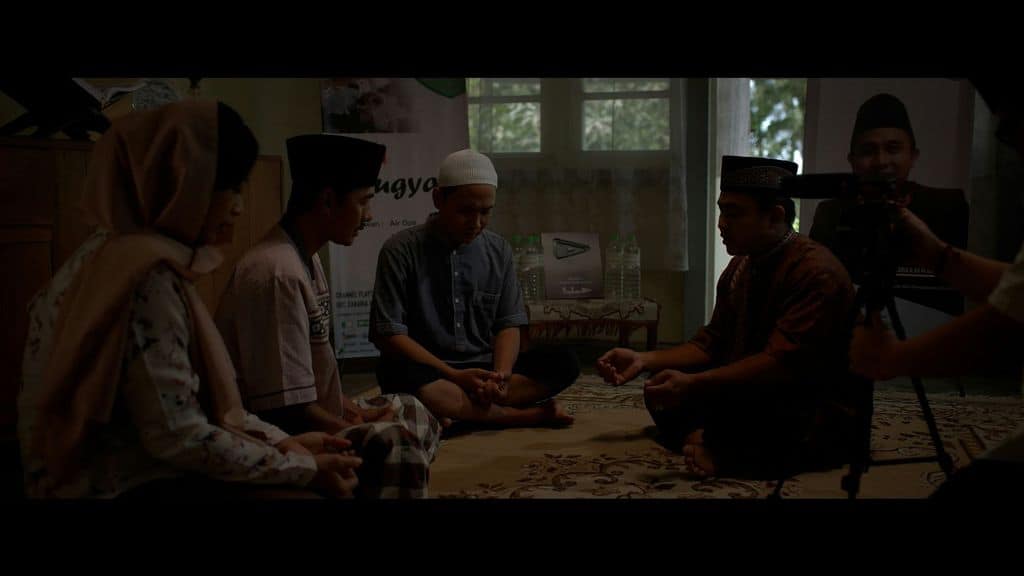Pan Nalin's newest feature “Last Film Show” is a semi-autobiographical tale about about falling in love with cinema and filmmaking. The movie was shown in and around the director's native region of Saurashtra in Gujarat and stars boys from the same region. “Last Film Show” premiered at the Tribeca Film Festival.
“Last Film Show” is screening at Indian Film Festival of Los Angeles

9-year-old Samay (Bhavin Rabari) lives in the small town of Chalala in Gujarat. His hometown is nothing more than a place where the train headed for bigger, more populated destinations, stops for a bit. During these stops, the boy helps his Brahmin father (Dipen Raval) sell his tea. The boy's life looks bleak until the day he discovers cinema. After that, nothing can stop him from going to the cinema house in the big city, even his film-hating conservative father. Having no money to enter the cinema and satiate his hunger for films, Samay is saved by the projectionist Fazal (Bhavesh Shrimali) with whom the boy strikes a deal – Samay will bring Fazal home cooked food and the older man will let the boy in the projection booth for free. The boys idyll new life is soon disrupted, because the cinema switches to a digital projector.
“Last Film Show” is a movie about the magic of watching and making films. The simple act of seeing a movie, being engrossed by its story, world, and characters, has the power to change lives irrespective of age, location, and time. It is a transnational, trans-temporal experience. Transcendental, even, as we see from Samay. From a boy whose future would be the continuation of his father's pitiful present, he becomes a bold dreamer and later, even an “inventor” of simple film projectors. So, for him, and for everyone else who has fallen in love with cinema, the art form becomes a quasi-religion to which the person devotes himself. And it gets saved by it, both in the moment of watching a particular film, and in the future, because his life acquires meaning.
When Samay and Fazal first meet, the boy tells the older projectionist the meaning of his name. It is “time”. His parents had no money and work, only time, so they made him, he explains to his newfound partner in crime. This is quite fitting, albeit it a bit too much on the nose, because “Last Film Show” is as much about time as it is about cinema. Time as a herald of development and a harbinger of ruin.
We see this best in the clash between father and son. The first is extremely conservative, boring, and not afraid to use violence against his son, just to preserve some old and imagined spiritual purity that his caste entails. Because of that, the movie seems to suggest, he is a poor uneducated tea seller. We can't but not see here Pan Nalin's critique of his own father.
On the other side, we have Samay himself, who is painted by the director as something like a child of the future. Incredibly curious and smart, he quickly starts helping Fazal prepare the reels for projection, but also cutting and splicing footage, even going as far as to create a makeshift cinema projector. He also experiments with light and shadow, uses broken glass bottles to create different lenses, and comes up with grabbing stories out of random matchboxes. All of that while running away from school, because it is boring, and going to the cinema. In short, a born film (and not only) genius.
The only problem is, Samay isn't all that likable character. Don't get me wrong, Bhavin Rabari is a good actor with a great energy and presence, and carries large portions of the movie. It is as if Pan Nalin the man desires to paint himself as a savant so much that it overrides Pan Nalin the director and forbids him from any character development. As a result, Samay often comes off as an arrogant brat who throws fits when things don't go his way. A megalomaniac in the making, even. Shreyas Beltangdy's and Pavan Bhat's editing doesn't help, either, because it skips over many scenes that could have established the boy as a talented student of cinema.
The changing of the times is not only good, we soon learn. The new, better and more modern train is going to pass Chalala, forcing many from the community, including the boy's father into bankruptcy. And the old analog projectors in the cinema the boy frequents are also headed for change, forcing Fazal out of his job. And yet, the only thing everyone can do is adapt to the times, not trying to fight them. A pretty toothless statement from a supposedly nonconformist freethinking director. But, ultimately, the same can be said about “Last Film Show” as a whole. It is pleasant to watch and seems to show rebellion against the status quo, while at the end managing to say nothing new about a topic that has been better explored by directors from Giuseppe Tornatore to most recently, Masayuki Suo.
















